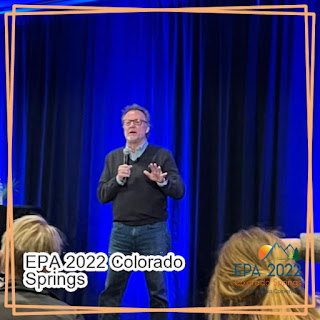While I’ve been involved in publishing for a long time, there are some simple but important practices that writers need to be using. Some people would call these actions “old school.” In this article I want to give some examples and encouragement.
Build Relationships
As writers, we need relationships with others in the publishing world. How are you build these relationships and adding to them? For example, this week I received an email from an author that I had not heard from in seven years. I exchanged emails with her then I checked my phone and her number was still in my address book. I called the number and had a short conversation with her. I encouraged her to come to
another writer’s conference, listened to her book pitch and affirmed the value of this concept. It didn
’t take much time but I believe I passed on some value to this writer and hopefully our paths will cross again in the future.
Throughout my day, I will get an idea to contact someone, pick up the phone and call or leave them a message. It is an old school practice that I do often. Sometimes it leads to something and sometimes not. At least I’m knocking on the door, and trying to get it to open--not just thinking about it. As writers we have to be proactive in our actions and maybe you can do so through making more phone calls.
Monitor and Respond to Your Email
As editors and writers, we are in the communication business--which unfortunately often doesn’t communicate. Everyone has email. Are you reading and responding to your email?
Several weeks ago, I received an email from an author who last fall considered our
Morgan James Publishing contract offer and turned it down. In the new email from this author, he asked if the contract was still available. I checked with my colleagues and learned the contract could still be available. I revised the date on the contract and returned it to this author. It took some time but he signed this contract and is moving forward to publish his book.
Is there an offer that you have turned down which you could return to that publisher and make a different decision? The possibilities are there if you take an old school action and follow-up.
Design and Carry Business Cards
Do you have a current business card? If not, I encourage you to create one and carry it with you. I’ve used my business cards in many different places such as on an airplane or in a restaurant or even in my local post office. Whenever I give a card, I will often ask for their information or business card. Sometimes I get it and sometimes not.
Keep track of The Data on Those Cards
When you receive a card or address information, do you keep track of this data or actively put it into your computer address book? It's an old school practice. You never know when you will need to reach out to this person and you can’t if you don’t have the data. Take consistent action to preserve and add to your data collection. If someone doesn’t have a card, I will often gather the information with a pad and paper which is an old school practice.
If you don
’t hear from someone, do you follow-up and see if they need something additional? Last week, I remembered a proactive author who was enthused about his second book contract with
Morgan James Publishing. Because I never received this author's signed contract, I called him to see if he had any update or questions?
I learned that he had signed and returned his contract over a week earlier. As we were on the phone, he resent his signed contract so I could get it moving forward. Without my follow-up, the contract would still be stuck in limbo. Technology is not perfect and as people we make mistakes and don’t get something done that needs to be done. Are you using the old school method of email or phone to follow-up?
It is not a perfect process. Each of us have more to be done than any of us can do. When something important to you does not get done, it’s important to follow-up and take action.
Within the publishing world, we understand that it is a process. There is no right or wrong way to do these old school practices. The key is to use them on a regular and consistent basis. It will yield results for your publishing. What am I missing? Let me know in the comments below.
My Articles in Other Places:
In these articles, I encourage you to guest blog and write for other places. Here’s a couple of my recent published articles:


